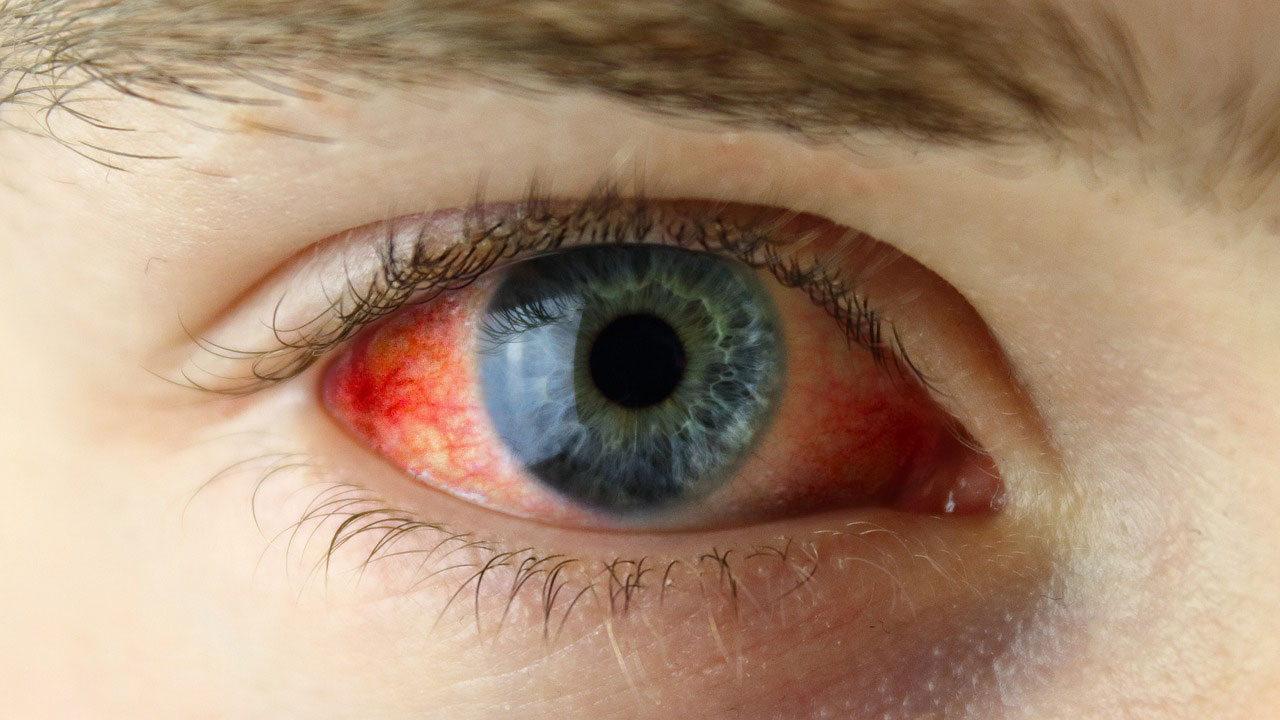How Viruses Can Affect Your Vision

Certain viral infections can cause changes to your eyesight. In many cases, the changes are temporary.
However, there are situations where viral effects can be longer-lasting and could potentially lead to serious eye damage.
Here’s a rundown of viruses that can affect eye health and vision.
Viral conjunctivitis
Conjunctivitis (‘pink eye’) is the most common eye viral condition. It is an infection of the conjunctiva – the thin membrane that lines the outside of the eyeballs and the inside of the eyelids – and often occurs in conjunction with a respiratory infection such as the common cold. The condition is usually temporary and causes no lasting harm.
- Symptoms: redness, soreness, blurry vision, a white and stringy discharge, itchiness, eyelid swelling, and/or grittiness of the eye. (A sticky yellow discharge may indicate a bacterial rather than viral infection).
- Treatment: symptoms may be relieved by regular eye washing, cold compresses, and soothing eye drops.
- Prevention: the condition is very contagious. To prevent spreading, you should always wash your hands before and after touching affected eyes, discard tissues after use, and refrain from sharing towels or face-washers. Avoid using contact lenses until you are symptom-free.
Seek additional medical advice if the condition lasts longer than two weeks, if vision decreases over time, or if severe pain or light sensitivity occurs.
Herpes Simplex Virus (HSV) Keratitis
HSV is the same virus that causes cold sores. When it affects the eyes it can lead to infection of the cornea – the clear dome that covers the coloured part of your eyes.
- Symptoms: eye pain, redness, blurred vision, watery discharge, light sensitivity.
- Treatment: includes prescribed eye drops or antiviral medications, and surgery in some cases. If untreated, the condition can lead to corneal ulcers and scarring or damage to the retina.
- Prevention: keratitis tends to recur in people who have already had the disease. You can help prevent both recurrence and spreading to others by washing hands before and after touching your eyes, especially if you have cold sores.
This condition needs to be treated quickly by an eye specialist.
Herpes Zoster Virus (HZV) shingles of the eye
HZV is the chicken pox virus, which can cause shingles if reactivated. Shingles tends to occur in people who are over 50 or have reduced immunity.
- Symptoms: burning/throbbing eye pain, redness, watery discharge, light sensitivity, vision impairment.
- Treatment: like HSV keratitis, shingles of the eye can lead to long-term vision problems if untreated. The condition is treated with oral antiviral medications, but treatment needs to happen within the first 72 hours.
- Prevention: the condition is not contagious. The best prevention is a shingles vaccine.
Cytomegalovirus (CMV)
CMV is an infection that attacks the retina at the back of the eye. People with reduced immunity or who are on immunosuppressants have a higher risk. CMV was a common cause of blindness in people with HIV before treatments were improved.
- Symptoms: eye floaters with blurred vision, loss of peripheral or central vision, often starting in one eye and progressing to the other.
- Treatment: antiviral medications and/or laser surgery. Without treatment the condition can damage the retina and optic nerve, leading to reduced vision or blindness.
- Prevention: strengthening of the immune system may reduce the risk of CMV. But the condition is often ongoing, and symptoms tend to recur.
Whole body viruses
Some bodily viruses can affect the eyes. These include:
- Measles – damage or destruction of retinal cells.
- Mumps – swelling of or damage to the optic nerve in rare cases.
- Rubella – cataracts, glaucoma, strabismus (‘turned eye’), retinopathy and other eye conditions.
- COVID – how COVID affects the eye is still being researched. So far, the main effect seems to be conjunctivitis.
If you wear contact lenses and have symptoms of any of the above conditions, make sure to ask your eye doctor if it’s safe to continue using them right now.
Is it time for your annual eye exam? Make a booking to check your vision and eye health.
Share on




















